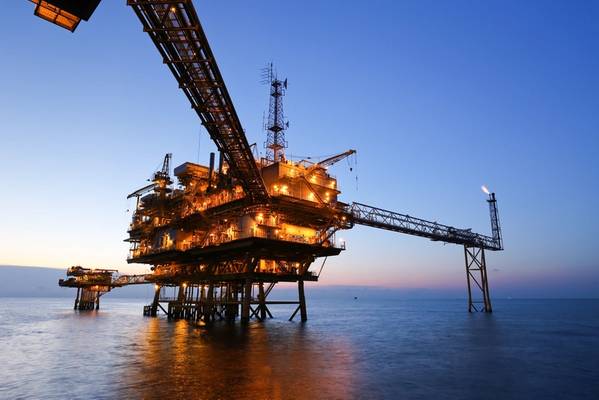
Big Oil is today in a spending sweet spot as years of cost cuts and rising oil prices converge but investments will need to rise after 2020 to boost output, BlackRock, the world's largest asset manager, said on Tuesday.
Oil and gas giants such as Royal Dutch Shell, Chevron and BP are generating as much cash at today's oil prices of around $70 a barrel as they did in 2014, before crude spiraled down from over $100 a barrel to lows of below $30 a barrel.
As they emerge from the deepest downturn in decades, boards have vowed to remain thrifty and stick to lower spending targets in order to return value to shareholders after years of pain.
Alastair Bishop, director and portfolio manager in BlackRock's natural resources team, which has major holdings in the world's five largest oil and gas companies, said he did not expect capital expenditure, or capex, to rise in the near term.
"It is a sweet spot for IOCs (international oil companies) where they have relatively low cost inflation, a reasonable oil price and at these levels they can generate significant cashflow to go towards paying down debt (and share) buybacks," Bishop told Reuters in an interview.
BlackRock is the largest investor in Shell and BP and among the top five in Total, Exxon and Chevron, Eikon Refinitiv data shows.
Unlike earlier in the decade, when oil companies raced to grow production to meet soaring demand in China, boards are today focused on returns from investments, Bishop said.
"I am not sure investors are wanting large IOCs to be chasing growth. There is much greater interest in generating returns and free cash flow."
But given the nature of the business where fields naturally decline as they age and take years to develop, investments will have to grow after 2020 to avoid a dip in production.
"Would I be surprised if beyond 2020 capex budgets start to move higher? No, I wouldn't. There will be a little cost inflation and they will need to start thinking about their production profile into the 2020s," Bishop said.
The appetite for huge multi-billion-dollar projects such as deepwater oil fields and large gas processing facilities that became the trademark for Big Oil has however weakened, Bishop said.
Instead, companies should opt for smaller-scale and phased projects where spending is better controlled such as shale oil and offshore field expansions as well as non-oil and gas projects such as chemical plants and power generation, he added.
"There seems to be less appetite for just plowing money straight back into the ground," according to Bishop.
"From our side, unless you have new opportunities right at the bottom of the cost curve we are not that desperate for you to drive volume growth in terms of oil."
Renewables
BlackRock sees the transition away from fossil fuels to cleaner low-carbon energy happening faster than many oil companies expect, with oil demand peaking in the early 2030s, Bishop said, around a decade earlier than most other forecasts.
But what role oil majors will play in the transition remains unclear.
Europe's energy giants have stepped up investments in low-carbon energies following the landmark U.N.-backed 2015 Paris Climate Agreement, in contrast with their U.S. rivals.
"Levels the Europeans are spending in that area look entirely reasonable to me," Bishop said. "If they can prove the business model works then it would make sense for them to start allocating more."
(Reporting by Ron Bousso; Editing by Adrian Croft)